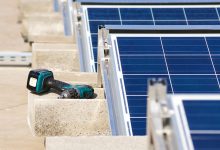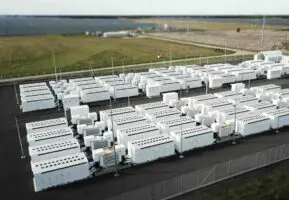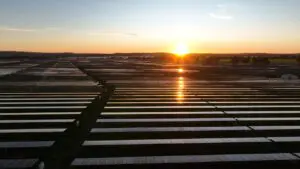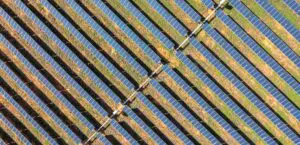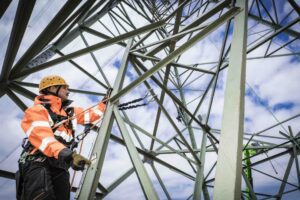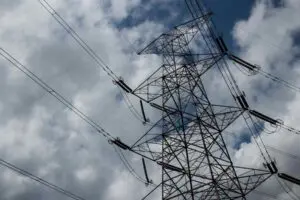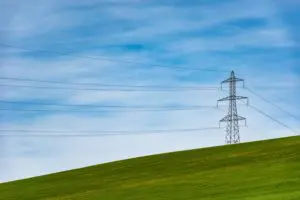Australia’s retail sector led the switch to renewable electricity in 2020, with almost 2,000MW of new power purchase agreements signed last year, a new survey of corporate commitments to purchase renewable electricity has found.
The survey, undertaken by Greenpeace Australia, found that it major retailers, including Woolworths, Bunnings and Aldi, that made the biggest moves into the renewables market last year, accounting for 1,146MW of deals struck last year. The telecommunications sector, led by Telstra, was the second largest corporate sector, signing deals with 713MW of new projects.
“Australian companies made a huge leap forward on the switch to 100% renewable electricity in 2020, with clean energy commitments by major Australian businesses now set to create solar and wind power equivalent to powering all the homes in Brisbane and Perth combined,” Greenpeace Australia’s REenergise Campaign Director Lindsay Soutar said.
According to a similar tracker of corporate power purchase deals maintained by Energetics, 2020 was a massive year for renewable energy deals, setting new records and which also saw some substantial deals struck by a number of resources companies.
Woolworths, which ranks as one of Australia’s largest energy users, secured power purchase agreements with 880MW of new wind and solar projects last year and was followed by Bunnings and Aldi, which each signed deals with more than 100MW worth of projects. Both Woolworths and Aldi have made commitments to transition to 100 per cent renewables, as has Bunnings.
Coles, which is facing growing pressure as one of the few major retailing groups that have yet to commit to a 100 per cent renewable energy target, also signed a deal with the Queensland government owned CleanCo to meet 90 per cent of its electricity use at Queensland stores with renewables, with that agreement commencing in 2022.
This followed a very strong year for the banking, finance and brewing sectors in 2019, and according to Greenpeace, early indications suggest that 2021 will again be a strong year for corporate renewable power purchase agreements.
“Major chains such as Woolworths, Bunnings and Aldi committing to 100 per cent renewable energy saw retail eclipse other industries. Retailers signing deals with wind and solar farms in regional Australia, and using their abundant roof space to host solar panels, has seen them get out in front of Australia’s rapid transition to clean energy.”
Soutar said that power purchase agreements involving wind and solar projects had become a cost effective way for corporates, including the major retailers, to reduce their energy costs, as well as being an important contribution towards reducing greenhouse gas emissions.
“Retail giants making the clean energy switch shows that 100% renewable energy is a no-brainer for businesses – it’s cleaner, cheaper and a crucial part of their responsibility to tackle climate change,” Soutar added.
“Greenpeace Australia Pacific is now calling on big retail brands like Coles and Kmart to ramp up their climate commitments and switch to 100 per cent renewable electricity.”
Through the report, Greenpeace Australia examined the size and types of corporate power purchase agreements being secured by major retailing companies, which often control large energy hungry retail premises, and which have the capacity to support a significant volume of investment in new wind and solar projects.
The report estimates that the combined volume of corporate renewable electricity purchases could power the equivalent of 1.3 million homes, with purchases from the four largest retailer renewable buyers, ALDI, Woolworths, Bunnings and Officeworks, underpinning the construction of almost 1,900MW of new wind and solar projects alone over the next five years.
Just over 5,000 construction jobs are expected to be created through the projects supported by the power purchase agreements and found that there was widespread community support for companies making renewable energy commitments.
Polling commissioned by Greenpeace found that more 70 per cent of Australians through that companies should be setting targets to transition to 100 per cent renewable electricity and that more than two-thirds would also be more likely to work for, and buy products from, companies with such targets.
See also the latest global data: Corporations purchased record 24GW of renewables in 2020

